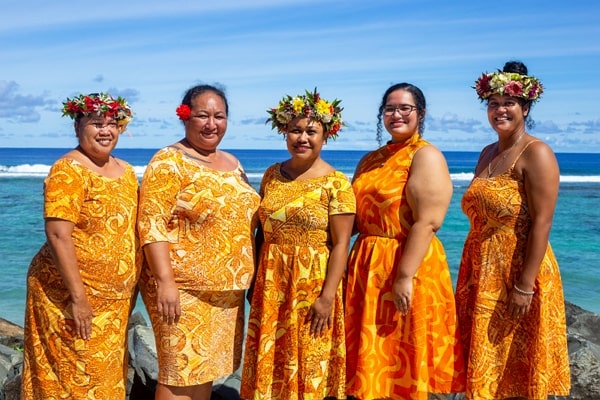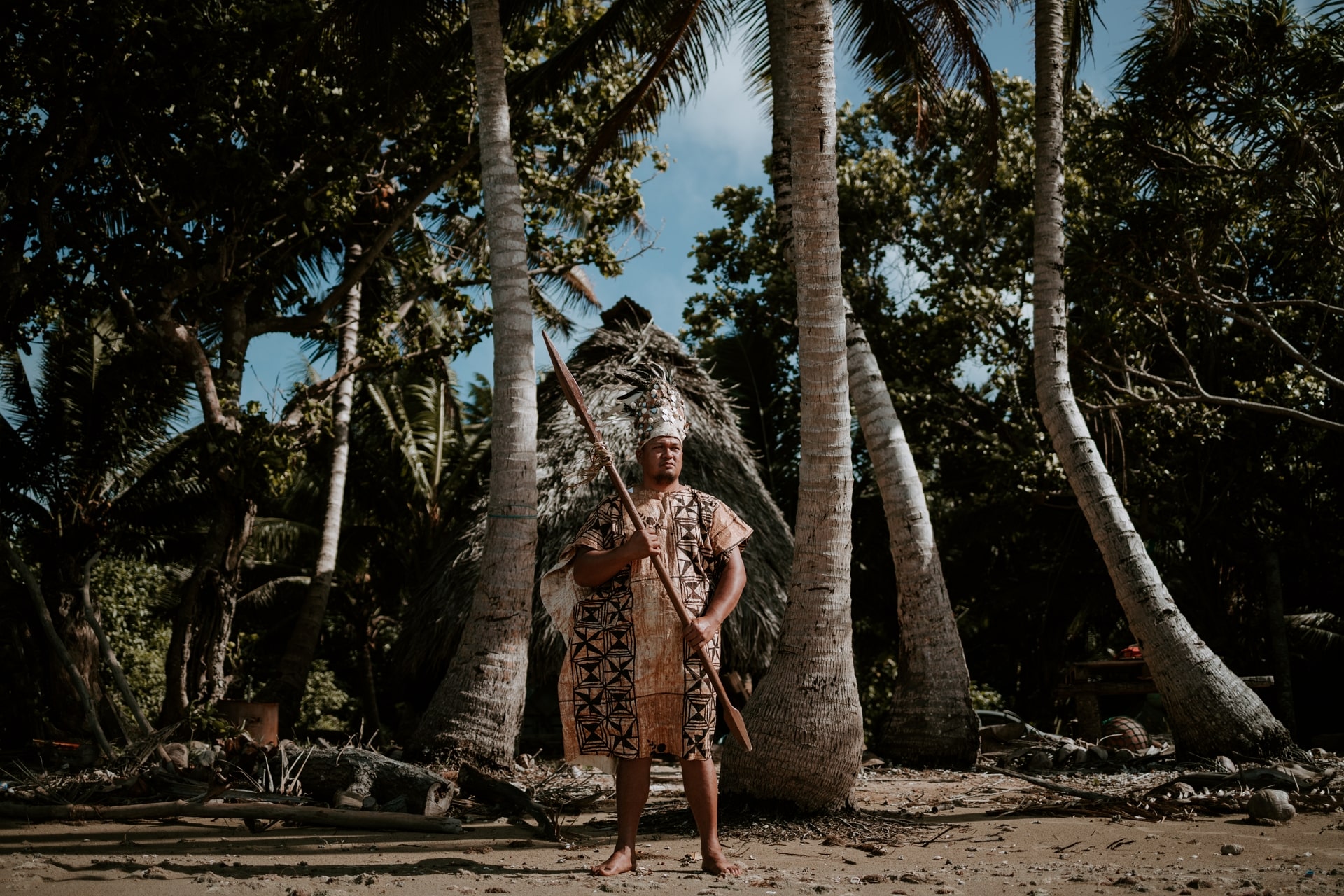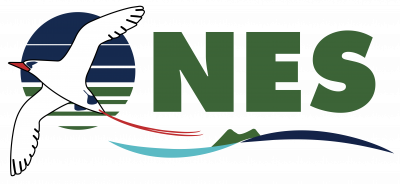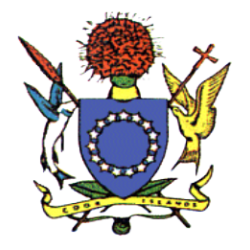About Us

OUR HISTORY
The Cook Island enacted the Conservation Act 1975 as its first legislation to manage the environment on 15 September 1975. Prior to this enactment the environment was regulated under applicable New Zealand laws and customary practices determined by traditional leaders. The Rarotonga Environment Council (REC) was established as the Permitting Authority and consisted of technical advisors, private sector and the Aronga Mana. The first office was headed by Tony Utanga and was situated at a seaside building where the Ministry of Internal Affairs is currently located.
On 29 June 1978, the Cook Islands Cabinet declared the Island of Suwarrow as a National Park. The Conservation Act 1975 was repealed on 15 April 1987 and the agency became the Conservation Services under the directorship of Gerald McCormack.
In 1994 the Conservation Act 1987 was repealed by the Rarotonga Environment Act 1994/95 to expand the legal mandate of the agency. The agency came under the Ministry of Works, Environment and Physical Planning following the nationwide government reform in 1996.
On 19 November 2003, the Rarotonga Environment Act 1994/95 was repealed by the Environment Act 2003. The legislation formalised the establishment of the National Environment Service or Tu’anga Taporoporo (Cook Islands Maori name) as a statutory agency of the Crown and expanded the Permitting Authority to include the members of Parliament of the respective island, NGOs and Government Ministries. The National Environment Service is established to protect, conserve and ensure the Cook Islands environment is managed sustainably. The agency is headed by a Director with delegated powers to carry out the functions of the Environment Act 2003.

OUR ROLE AND OUR PEOPLE
The role of the National Environment Service is based on 5 main areas;
(1) To protect, conserve and manage environmental stewardship;
- sustainable use of natural resources;
- wildlife, in particular protected species;
- designated areas of the Cook Islands waters;
- pollution of air, water, and land;
- damage to any beach, land, internal waters, inland waters, drain, building, market place and public spaces;
- safe disposal of toxic chemicals and waste
(2) To monitor and evaluate activities which significantly affect the environment. This includes reporting and investigating areas relevant to the protection and conservation of the natural resources.
(3) To enforce the Environment Act 2003 and recommend new regulations under the Act.
(4) To implement, coordinate and ratify regional or institutional convention, treaties, protocols or agendas relating to the environment.
(5) To provide secretarial and administrative services to each Island Environment Authority, National Environment Council. The institutional strengthening of the Service through training and development will provide a strong support system.
The National Environment Service has four main departments:
- Environmental Policy and Planning – manages national policies, strategies, human resources, finances, administration and communications
- Environmental Compliance – provides the administrative arm for the Permitting Authority to issue permits and ensure compliance, monitoring and enforcement.
- Environmental Stewardship – manages projects relating to biodiversity, conservation, Pa Enua (Outer Islands), research and data collection
- Environmental Partnerships – manages the delivery of donor and partner projects which includes designing, validation, implementation and stakeholder engagement.
The current staff for the National Environment Service are listed as follows:
| NAME | POSITION |
|---|---|
| Halatoa Fua | Director |
NES Staff: Environmental Policy & Planning (EPP) Department
| NAME | POSITION |
|---|---|
| Tekura Moeka'a | Manager Environmental Policy & Planning |
| Roselyn Strickland | Environment Legal Counsel |
| Tohoa Puna | Senior Finance Officer |
| Sandee Cook | Digital & Communications Co-ordinator |
| Maria Maoate | Research & Data Co-ordinator |
| Apii Pakitoa | Administration Officer |
NES Staff: Environmental Compliance (EC) Department
| NAME | POSITION |
|---|---|
| Vavia Tangatataia | Manager Environmental Compliance |
| Phillip Strickland | Senior Environmental Compliance Officer |
| Matthew Rima | Senior Environmental Compliance Officer |
| Benjamin Maxwell | Senior Environmental Compliance Officer |
| Eva Patai | Environmental Compliance Officer |
| Cailean Henderson | Environmental Compliance Officer |
| Troy Penno | Environmental Compliance Officer |
| Alowesi Suveinakama | Environmental Compliance Officer |
| Keanu Harawira | Environmental Compliance Officer Intern |
NES Staff: Environmental Stewardship (ES) Department
| NAME | POSITION |
|---|---|
| Elizabeth Munro | Manager Environmental Stewardship |
| Moana Tetauru | Biodiversity Co-ordinator |
| Jessie Nicholson | Biodiversity Co-ordinator |
| Karen Silk | NBSAP Project Co-ordinator |
| Linda Ruamoana | Senior Environment Officer - Aitutaki |
| Tangimama Harry | Environment Officer - Mangaia |
| Enua Wichman | Environment Officer - Atiu |
| Raita Moetaua | Environment Officer - Mauke |
| Greta Murare | Environment Officer - Mitiaro |
| Joe Mataio | Environment Officer - Pukapuka |
| Iorama Punga | Environment Officer - Pukapuka |
| Johnnie Tangaroa | Suwarrow Park Ranger |
| Keanu Harawira | Vacant |
NES Staff: Environmental Partnerships (EP) Department
| NAME | POSITION |
|---|---|
| Hayley Weeks | Manager Environmental Partnerships |
| Mii Herman | Senior Environmental Partnerships Co-ordinator |
| Siana Whatarau | Senior Environmental Partnerships Co-ordinator |
| Ngatupuna Kae | Environmental Partnership Co-ordinator Assistant |
| Lydia Sijp | GEF7 Senior Project Officer |
| Fred Nicholas | GEF7 Project Officer |
| Mareva Cameron | Environmental Partnership Co-ordinator |
| Terena Koteka-Wiki | GEF7 Project Officer |
OUR POLICIES & PLANS
There is a suite of policies, strategies and plans developed over the years since setting up national objectives and actions to enable environmental protection, conservation and management. In 2022, NES has established a 5-Year Strategy to provide a roadmap for its trajectory in environmental leadership in the Cook Islands. Furthermore, NES has completed a Human Resource Reorganisation Plan and a Communications Strategy in 2022.
In regards to Policy, there has been significant work to strengthen environmental policy and legislation in the Cook Islands. In 2019, a gap analysis review was undertaken to assess the overall environmental policy and legal framework for the Cook Islands. This review was also supported by evidence from the Tonkin & Taylor Report 2019, an initiative undertaken by the Reef to Ridge Program (R2R Program). It was recognized that there is a need to improve the environment legal platform and to provide a much more robust environmental law regime for the Cook Islands.
From 2020 to 2021, an initial environment policy was drafted as a result of the review and after undertaking a comprehensive consultation with stakeholders in Rarotonga and the Pa Enua. The draft policy will be redeveloped in 2022 to strengthen the scope of NES.
NES is currently establishing its basic platforms in Operations, Governance, Policy and Communications for institutional strengthening. From the 2022/23 financial year, NES will heavily focus in strengthening the Environment Act 2003 through a raft of amendments. NES also envisages to review and pass new Environment Regulations focusing on waste management and environmental compliance.
OUR CULTURE AND THE ENVIRONMENT
Our cultural identify is deeply rooted in our environment and it is part of our heritage and legacy that must be passed on to future generations of Cook Islanders. From traditional medicine, to artefacts, fishing and agriculture, our environment has shaped our cultural values.
As caretakers of the land, we must take pride in its natural beauty and it is critical to ensure that we work now to protect and conserve this precious resource. We are confronted by the impacts of climate change and significant human activities that is eroding our pristine environment.
With careful nurturing, conservation and sound management, we can achieve sustainable development while protecting our environment and cultural heritage. Traditional governing bodies like the House of Ariki and Aronga Mana are effective partners that can guide sustainable development.



